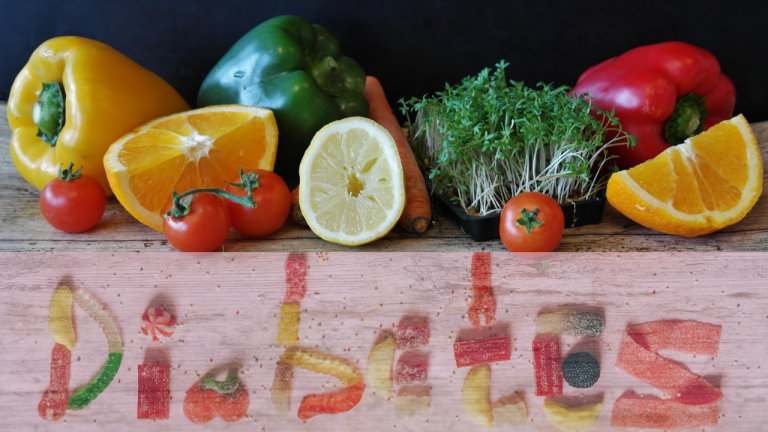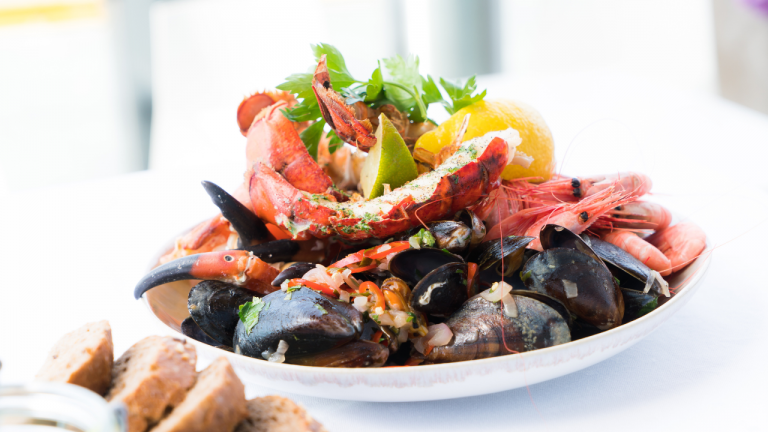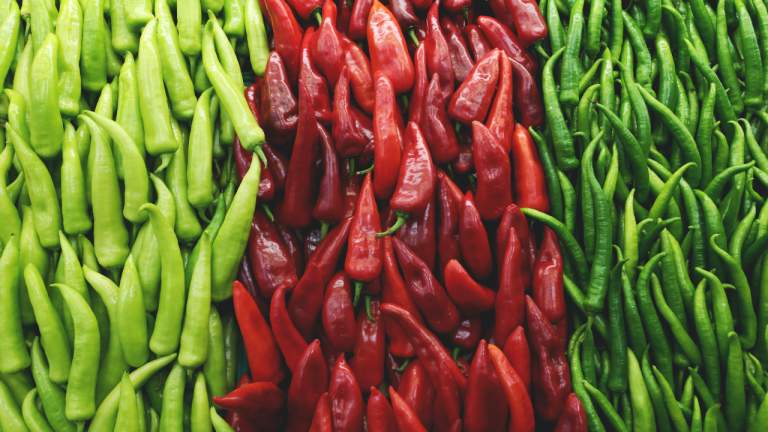Foods To Fight Winter Inflammation

Here are some anti-inflammatory foods that can be your staple this winter.
Winter is typically associated with shorter days, lower temperatures, warm beverages, and comfort foods which are rarely brightly coloured fresh foods. A new batch of fruits and vegetables, however, is about to reach its peak in terms of flavour, nutrition, and anti-inflammatory potential as a result of the cooler weather.
Although some inflammation is natural, persistent inflammation increases your chance of developing diseases like cancer, dementia, diabetes, and other conditions. There are long-term health benefits of an anti-inflammatory diet rich in foods that reduce inflammation. Here are some anti-inflammatory foods that can be your staple this winter.
Add these foods to fight winter inflammation:
Pomegranate
Don’t be intimidated by the pomegranate’s outer skin since the soft seeds, sometimes referred to as arils and juice, are bursting with taste and filled with powerful anti-inflammatory properties. Thanks to substances like ellagitannin, anthocyanins, and flavonols, which function as antioxidants, inflammation brought on by free radical damage is reduced, and further damage is prevented. In actuality, red wine and green tea are thought to have less antioxidant potential than pomegranates. Arils work well as a salad substitute for berries and citrus segments, while pomegranate juice adds a tart, fruity punch to teas, smoothies, and kombucha.
Turmeric
In the west, this spice is often referred to as “Yellow Gold.” This spice is essential to Indian cooking. It is a food additive with excellent health benefits. It contains curcumin, an extremely potent anti-inflammatory compound. Rheumatoid arthritis can be effectively treated with turmeric, which also reduces inflammation. Turmeric milk, more commonly known as turmeric milk is often a staple in south Asian households due to its array of benefits.
Beetroot
Potassium, folate, and vitamin C are all nutrients that play different roles in the immune system’s control of inflammation, and beets are an excellent supply of all three. Beets also contain nitrates and betaine, which make them stand out as an anti-inflammatory superfood. Preliminary research suggests that the lesser-known antioxidant-like substance betaine can reduce inflammatory blood indicators. Furthermore, nitrates that are found in nature seem to have an anti-inflammatory action that decreases blood pressure.
Broccoli
Due to its propensity to flourish in cold climates, broccoli is essentially a winter vegetable, even though we may purchase it all year. You probably already know that a diet low in inflammatory foods should include multiple servings of veggies each day. Cruciferous vegetables have bioactive sulphur compounds called glucosinolates that lower inflammation and reduce the risk of disease. If broccoli isn’t your favourite cruciferous vegetable, try kale, cabbage, spinach, and turnip greens instead.
Salmon
Salmon is a non-vegetarian option extremely abundant in omega-3 fatty acids. Alpha-linolenic acid, an essential omega-3 fatty acid, makes it a fantastic anti-inflammatory meal. Omega-3 reduces inflammation and the need for anti-inflammatory medications. If you are a vegetarian or not a fan of fish, there are a variety of other omega-3-rich foods you can opt for. Some of these foods are nuts, avocados, seeds, certain cooking oils, and so on.
Sweet potatoes
When it comes to starchy vegetables that reduce inflammation, sweet potatoes are at the top of the list. This is owing to their outstanding carotenoid concentration as well as the fact that they are a rich source of vitamin C and a lower-glycemic carbohydrate. The vivid orange colour of the potato is due to carotenoids (like beta carotene), which also shield cells from harm by free radicals that could cause inflammation or worsen already present inflammation. Additionally, the majority of carotenoids are transformed into vitamin A’s active form, which is essential for controlling inflammation and regulating the immune system.
These anti-inflammatory foods are ideal for people who suffer from inflammation and other ailments in winter.
Struggling With Inflammation This Winter? Eat These Foods To Prevent This
Inflammation is the body’s natural response to injury or infection, but chronic inflammation can increase the risk of certain diseases such as cancer, heart disease, and autoimmune disorders. Certain foods may help to reduce inflammation in the body, particularly during the winter months when the body’s immune system may be more susceptible to colds and flu. Here are some foods that may help to fight winter inflammation:
Omega-3-rich foods: Foods that are high in omega-3 fatty acids, such as fatty fish (salmon, sardines, mackerel), flaxseeds, chia seeds, and walnuts can help to reduce inflammation.
Turmeric: This spice contains curcumin, a compound that has anti-inflammatory properties. It can be used to season soups, stews, and curries.
Berries: Berries are high in antioxidants, which can help to neutralize inflammation-causing free radicals. Berries such as blueberries, raspberries, and strawberries are particularly good choices.
Garlic: Garlic is known for its anti-inflammatory properties and can be added to soups, stews, and sauces.
Ginger: Ginger also has anti-inflammatory properties, it can be added to tea, stir-fries, and soups.
Leafy greens: Leafy greens such as spinach, kale, and collard greens are high in antioxidants and anti-inflammatory compounds.
Nuts and seeds: Nuts and seeds such as almonds, pumpkin seeds, and sunflower seeds are good sources of healthy fats and antioxidants that can help to reduce inflammation.
Teas: Teas made from herbs such as ginger, turmeric, and green tea can also help to reduce inflammation.
In addition to including these foods in your diet, it’s also important to limit your intake of processed foods and refined sugars, which can increase inflammation. It’s also important to note that these foods are beneficial as part of a balanced diet and should not be used as a substitute for medical treatment.



